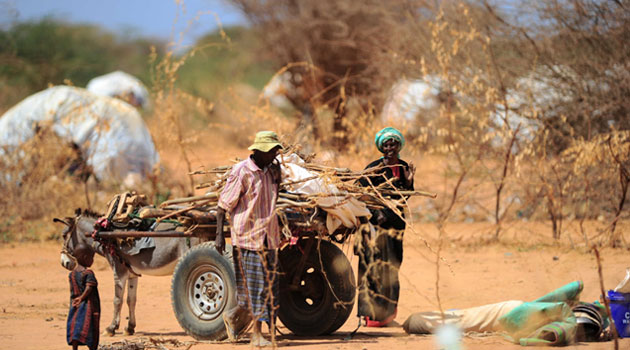
“It is not true that we are coercing the refugees to return to Somalia,” Interior Ministry Spokesman Mwenda Njoka said. “I have looked at that report and it is full of falsehoods”/FILE
NAIROBI, Kenya, Sep 16 – Kenya has dismissed as ‘baseless and malicious’ a report by Human Rights Watch which accused the government of coercing Somali refugees to return back to their country.
The report released Thursday said the much publicised repatriation targeting nearly 300,000 refugees from the world’s largest camp in Dadaab did not meet international standards.
“It is not true that we are coercing the refugees to return to Somalia,” Interior Ministry Spokesman Mwenda Njoka said. “I have looked at that report and it is full of falsehoods.”
He said the report’s sole aim was to “fund raise money from donors for their own benefit while misleading the whole world about an exercise that has the backing of the international community.”
Dadaab in the northern part of Kenya has been home to the refugees for three decades since war broke out in Somalia, while many more others were helped to get refuge in foreign countries – including in Europe.
“The Kenyan authorities are not giving Somali refugees a real choice between staying and leaving, and the UN refugee agency isn’t giving people accurate information about security conditions in Somalia,” said Bill Frelick, refugee rights director at HRW, insisting “There is no way these returns can be considered voluntary.”
The group said that its officials had interviewed 100 refugees and asylum seekers at the Dadaab camp while compiling the report, and found that “neither condition is being met under the current voluntary repatriation program.”
But the Interior Spokesman, in an interview with Capital FM News, said the number interviewed is too small and cannot represent views of the more than 30,000 refugees who have been repatriated and many more willing to return to their country.
“The refugees are not being coerced to return to their homes, this is a voluntary exercise and they have agreed to return back to their country because it is much better than the deplorable conditions they have been living in Dadaab,” Njoka said.
Kenya is working with the United Nations High Commissioner for Refugees (UNHCR) and the Somali government to repatriate the refugees, after deciding to close the camp in Dadaab.
President Uhuru Kenyatta has often firmly defended his decision to close the camp, resisting calls from several leaders from European countries who offered to continue supporting the refugees at the camp through the UNHCR.
The Human Rights Watch report said the government’s decision to close the Dadaab camp had left them “feeling trapped.”
Said the report: “They are afraid to return to Somalia, but also afraid of being arrested and deported if they stay in Dadaab until the November deadline.”
Many, the report said, have therefore, chosen to take US$400 in cash as part of a UNHCR-returns assistance package because they believe that if they don’t they will be summarily deported later this year without nothing.
The Interior Spokesman has however assured that elaborate measures have been put in place with the Somali government and UNHCR to ensure the refugees are taken back in a dignified manner.
“It is not that we are taking them where Al Shabaab is fighting,” he said, “There are parts of Somalia which are totally peaceful.”
He also dismissed HRW’s claim that hostility and abuse of Kenya’s Somali refugee population has increased significantly since Kenyan troops entered Somalia in 2011.









































